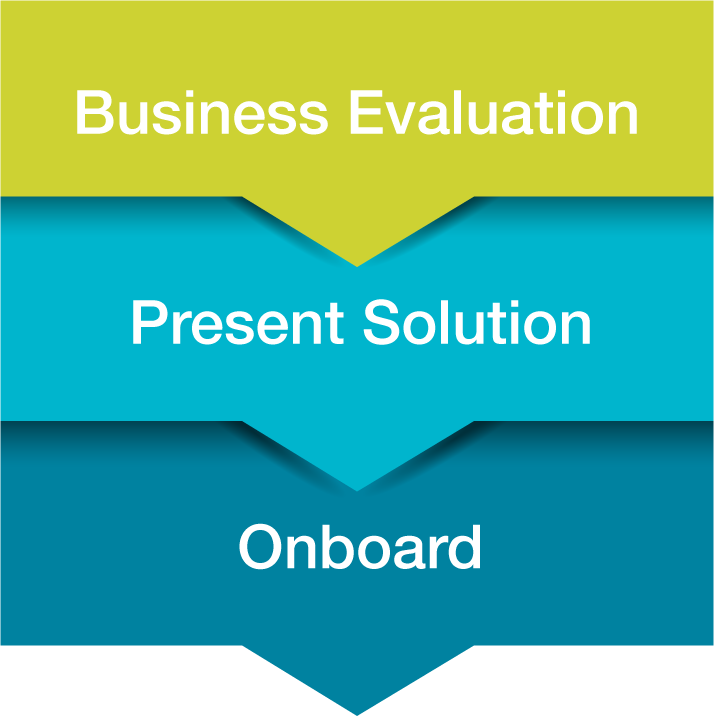What kind of businesses sign up for IT consulting?
Businesses of almost any size can benefit from IT expertise. However, just as each business is unique, each has specific needs, interests, and priorities. IT guidance should reflect that individuality. That said, we see a few common attributes with companies seeking our help.
- They realize information technology is key to their success. Getting IT right is important.
- These companies and organizations acknowledge that they are not experts in IT process, support, security, and compliance.
- Their leaders realize that they would rather spend their time on the parts of their business or organization where they can have a more meaningful and substantive impact, usually areas in which they are experts.
Everyone says that small businesses need cybersecurity, but that doesn’t make sense. Why would a hacker target me?
Unfortunately, the idea that you are safe from hackers just because you’re a smaller business isn’t true. We touch on that in our blog, 5 Crucial Cybersecurity Areas That Need Your Attention.
When you break it down, there are two main ways you could fall victim to a cybersecurity attack.
The first is you, like any of us with a connection to the Internet, are a target of opportunity. Simply put, this means that you could fall victim to one of the millions of phishing, social engineering, or other nefarious scams that are created on a daily basis. For hackers, it’s a numbers game. The cost of sending huge numbers of malicious emails is low, so hackers don’t need to be choosy about their targets. You could just happen to be the person that clicks a bad link, opens a suspicious email, or sends money without fully vetting the receiver.
The second way you could become a victim is that you are a target of choice. That is, you have caught the attention of a hacker who is now actively trying to exploit your IT weaknesses.
There are several reasons someone could target your business, specifically:
- Money. There are lots of ways hackers can make money off poorly protected IT systems:
- They can fool you into sending it directly (through creative phishing).
- They can steal your data or your customers’ information and sell it.
- Or they can encrypt your data and hold it ransom.
- Competitiveness. Hackers may want to steal your proprietary information, either for their own use or to sell to your competitors.
- Political reasons. Perhaps your organization advocates for a cause others don’t like.
A great way to start protecting your business today is to schedule a security audit to identify your potential exposure and ways to limit it.
Can I still work with you if I have an internal IT team?
Yes! Regardless of how big or small your internal IT team is, we are able to integrate with them to fill any gaps you may have.
We provide supplemental services to internal IT teams, ranging from special projects to managed security services to infrastructure monitoring.
Do you do on-site visits to support my in-person and hybrid teams?
We do. Anything we support under our agreements – users, computers, servers, networking gear – gets unlimited on-site support. However, we have found that remotely diagnosing and, often, fixing problems is faster and less disruptive.
If we can’t solve something remotely, we will send one of our highly trained technicians out if you are located within our service area.
If you aren’t located within our service area, we will work with you to resolve the matter in another way.
You will be taken care of, regardless of your location.
How will you support my remote workers?
Whether all of your employees are working from the office, you have a fully remote work model, or you have a hybrid office that includes a bit of both, we are able to support you and your employees.
We use monitoring and remote access tools to be able to support your users regardless of location. This means you can spend less time sitting with our technicians in person, and more time running your business.
We can handle it all remotely.
Do you assign primary technicians/account managers to accounts?
No, we do not assign primary technicians to our client accounts, though we get this question frequently.
We work hard to document your IT and security infrastructure and the processes needed to support them. While technicians certainly have different strengths, our process is intended to allow any member of our team to jump in where needed. Technicians, like everyone else, get busy, go on vacation, get sick, or take other jobs. Tying our clients to specific individuals limits how quickly and effectively we can assist.
So, who on your team will I work with?
Our team is here to support you and your business. We do this by layering our coverage. You will meet with:
- Our CEO, Noah, every quarter to discuss your service and to address any questions you may have for him
- Your account manager – your primary point of contact with EIS – monthly to address any questions, concerns, or needs you may have with your IT service
- Our technical support team, via phone, email, in person, or via our help desk, for any IT needs that may arise during your workday
We are here to support and protect you and your employees with all of your IT and cybersecurity needs.
Some people feel they don’t want to pay the monthly fee; they want to pay only when they need something fixed
This leads to HIGHLY variable spending.
One month you may spend nothing because there were no problems. Then next month you could spend a ton because things break unexpectedly, or a security breach is discovered.
You may not even notice that there is a problem until a computer starts acting up. Then you’re hit with the realization that a hacker has been sitting on your network for three months, collecting valuable data and waiting for the right time to strike.
Managed IT mitigates these issues, allowing for an even spend and peace of mind, knowing that your network is being monitored for suspicious activity and security breaches.
What does “break-fix” IT mean?
Break-fix is a reactive type of IT service where something breaks, you call someone, and they go in and try to fix it. You repeat this cycle over and over as things break.
Would you recommend a break-fix model?
NO, we wouldn’t, because break-fix IT is a reactionary approach to IT services, and EIS focuses on preventative IT solutions.
We encourage our clients to spend the effort up front to prevent the bad things from ever happening rather than respond to the bad things as they occur.
This makes your network more secure and reliable, and you don’t have to worry about losing time and money in the event of an IT emergency.
With EIS, you’re already covered.
What’s a business continuity plan and why do I need one?
A business continuity plan is one that gives direction on what you need to do to keep your business running smoothly when something unexpected happens.
This could be an outage, a security event, a natural disaster, or any other interruption to your business.
No matter how much preparation we do, there is always the possibility that something could go wrong. You want to have a plan in place to keep your business running smoothly in any event.
What is IT asset planning?
IT asset planning is a process where an IT professional takes inventory of your current technology and hardware, and collaborates with you to create a plan of when you will need to replace which devices.
EIS utilizes a 3–5-year planning horizon for the replacement of hardware to ensure hardware is new enough to keep staff efficient while also being sensitive to client IT budgets.
Why do businesses need IT asset planning?
We’ve worked with business owners that had put off replacing their hardware for as long as they possibly could and left all their computers to get as old as they could, thinking that this would save them money.
What happened was, the older those computers got, the slower they became. The slower the computers became, the less productive their employees could be. Before they ever spent a dime on replacing the devices, they were losing money.
When the computers finally did give out, the businesses were left with a huge bill to replace all of the devices in the office at the same time.
IT planning helps businesses to better budget for the replacement of outdated technology and to prevent the frustrations and loss of time and money that comes with working with old hardware.
I’ve had managed IT services before and the support was not responsive – how are you different from those other providers?
EIS has been in business for over 20 years. In that time, we have felt some growing pains ourselves. As a company, we have always taken our client feedback seriously. We’ve listened to the positive, and sometimes negative, comments, and we’ve made internal changes to improve our service delivery.
A few of the things we have done over the years to provide our clients with the best service possible are:
- Added a toll-free number so clients can call in
- Streamlined our processes so we don’t lose tickets
- Upgraded our staff application requirements and training
- Adjusted our processes as necessary to increase client satisfaction
We are always looking and listening for ways to better serve our clients and to be more responsive to all of our clients’ IT needs.
I worked with an IT company before, and when I tried to leave, they held my passwords and login credentials hostage
Your login credentials belong to you – they are your property – so this should NEVER happen.
At EIS, it never will. We want you to work with us because you want to, not because you’re afraid of losing access to your credentials or your accounts.
We work hard to create long-lasting partnerships with our clients, not a short-term exchange.
We’re with you for the long haul, and that can only happen if there is mutual respect and trust between us.
We don’t need managed IT
We hear, “We have an IT guy” a lot.
Your IT guy might be really good with networking or printers, or helping someone with their desktop, but IT has gotten so elaborate that you need a team of people to really address all of your needs.
Our clients need a little bit of a lot of things.
They may not need someone dedicated to security sitting around the office all day, but they do need to know that they have that base covered. This is where managed IT comes into play.
Managed IT gives you access to a team of IT professionals without the big bill of hiring an in-house team.
Where can I learn more about your cybersecurity services?
You can learn more about our cybersecurity offerings on our cybersecurity page.



















